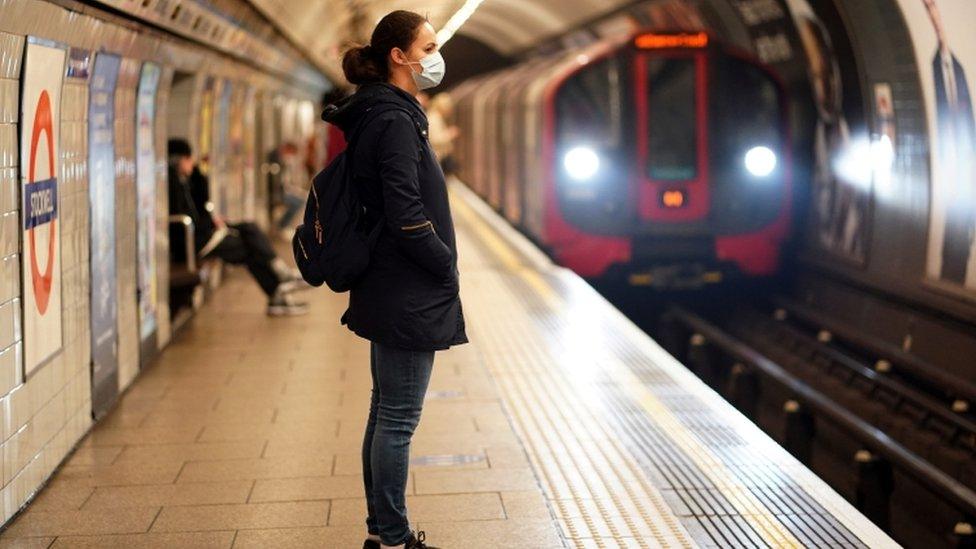Coronavirus: Transport for London reveals cost of pandemic
- Published
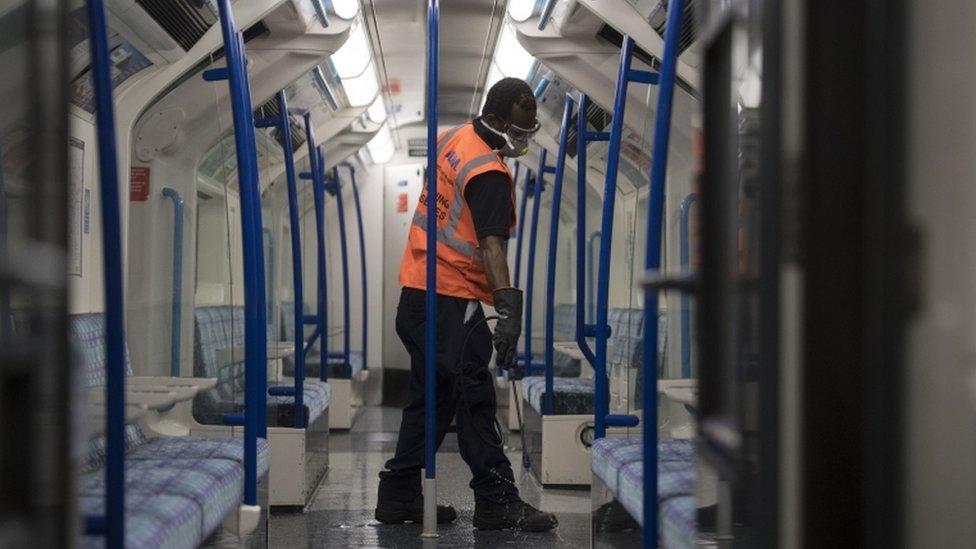
TfL has had to increase the number of deep cleans
Transport for London (TfL) said its advertising revenues plummeted by 90% during the most challenging financial quarter in its 20-year history.
The Covid-19 pandemic meant companies cancelled contracts to advertise on the London Underground network, TfL said in a financial report.
Bosses said coronavirus had caused a "catastrophic impact" on the business.
Significant changes to projects such as Crossrail and the Northern Line extension also hindered TfL's budgets.
TfL published its first quarterly financial results (Q1) on Thursday which has reviewed its cash flow from 1 April until 27 June.
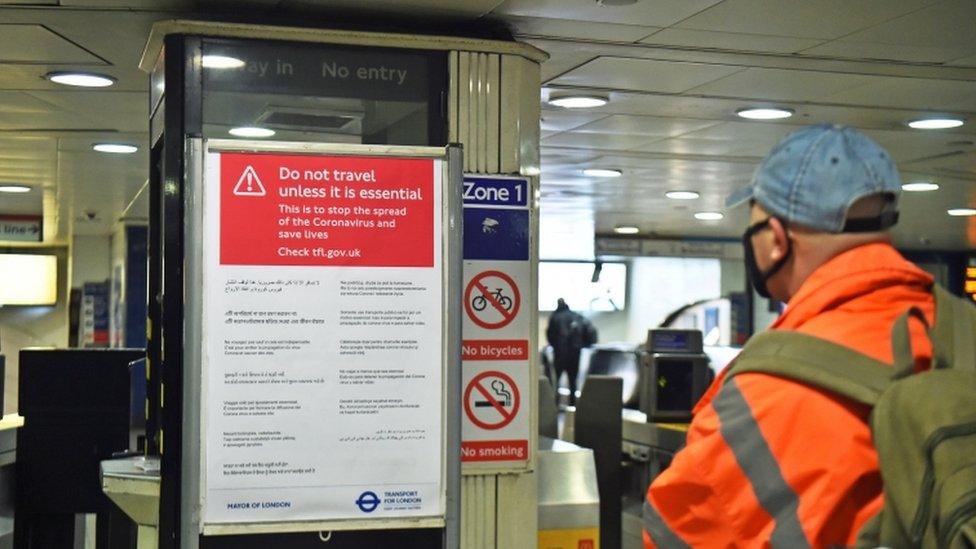
At the height of the pandemic TfL put up signs across the Underground warning people against non-essential travel
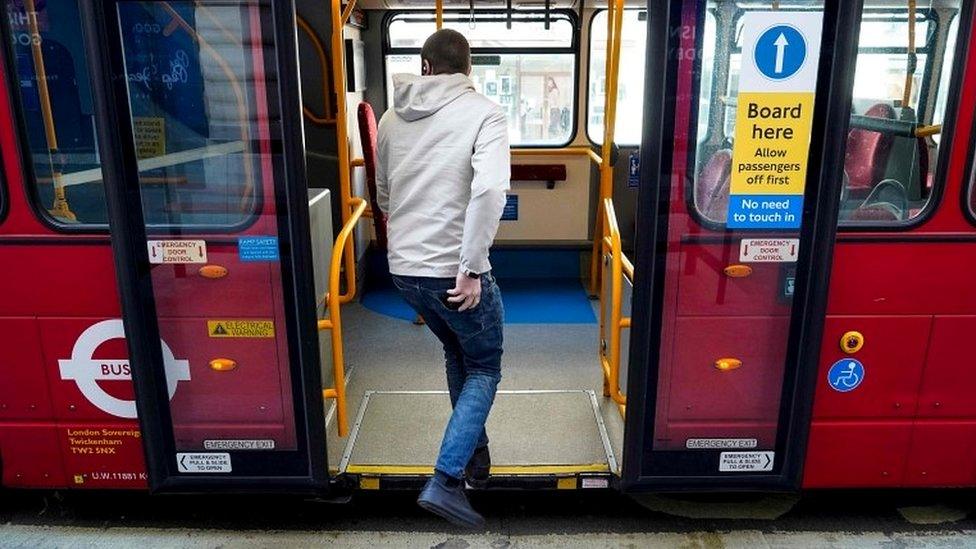
Commuters using London buses were told for a time in March and April to not pay fares
The report by TfL chief finance officer Simon Kilonback and group finance director Tony King, said the first quarter of the year had been "the most challenging for TfL in its history".
They added: "The coronavirus pandemic has had a catastrophic impact on our organisation, with the loss of life of a number of our colleagues, a severe decline in passenger numbers and significant changes to our operations and project delivery.
"The ongoing uncertainty on the spread of the virus, which may impact future government guidance on travel, and the impact of the pandemic on the UK economy makes forecasting and budgeting even more difficult."
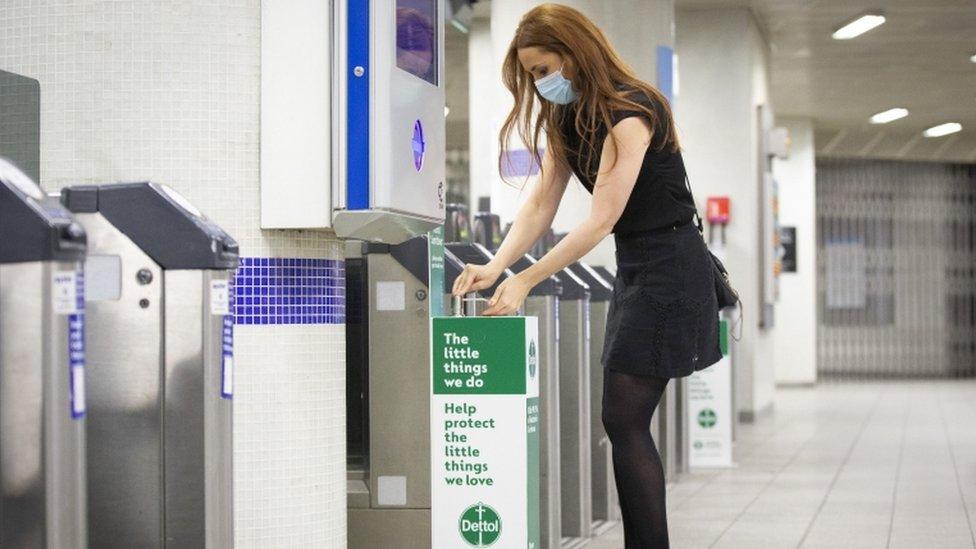
Around 800 sanitiser units have been put up across the London Underground network to help reduce the spread of Coronavirus and other illness causing germs
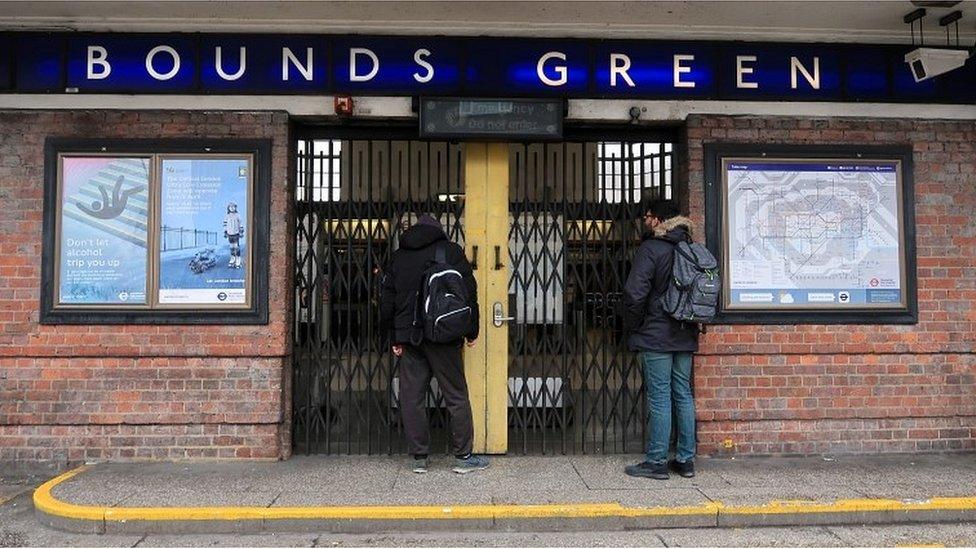
Bounds Green was one of many Tube stations forced to shut as TfL cut back services in March
Lockdown restrictions were cited as the reason for brands cancelling contracts as the "advertising audience was removed".
It meant TfL only took in £3m in advertising revenue in the first three financial months - in comparison to the previous quarter, 1 January to 31 March, when advertising revenue was £47m.
The report added: "We have recently started to see audiences return, and there has been some upward movement in advertising income.
"We are working closely with our advertising partners to ensure that, as the audience returns safely to London in line with emerging government advice, we are in a position to support the return of brands to our network and rebuild our revenue streams as soon as possible."
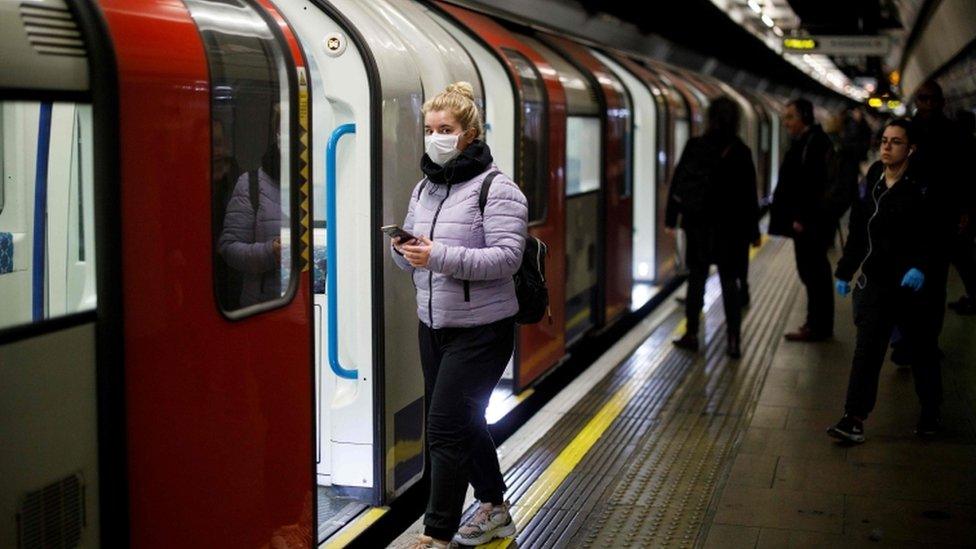
Passengers have to travel with a mask when using the Tube
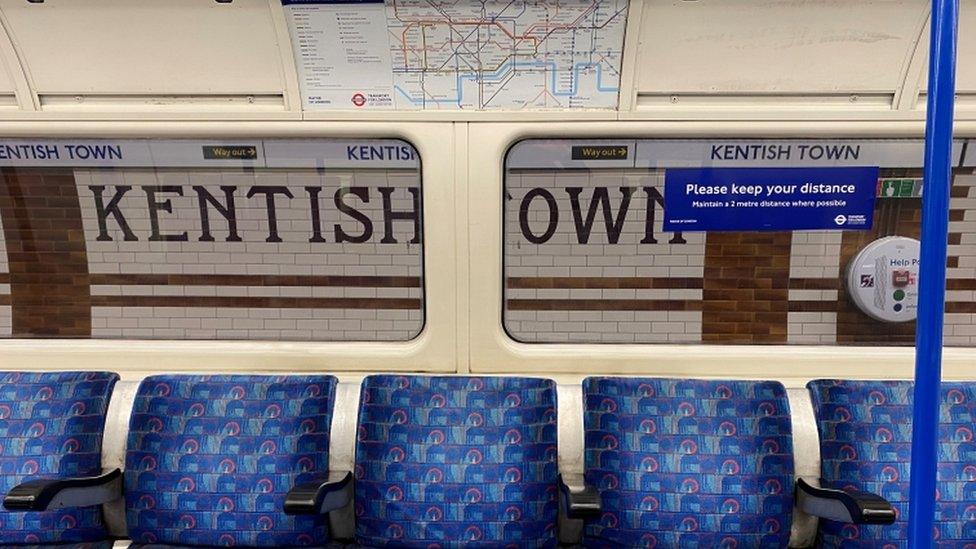
TfL said companies and brands "cancelled" advert contracts during the coronavirus pandemic
The report also showed TfL took £32m from the government's furlough scheme for 6,542 employees - around a quarter of its workforce.
In reaction to the pandemic in March, TfL had to scale back services on the London Underground, close dozens of Tube stations and change the way key workers boarded buses.
An emergency £1.6bn bailout was agreed with the government in May, but TfL said in its financial report it had to use £600m of cash reserves in the first eight weeks of the outbreak.
The bailout "was subject to a number of conditions", the report said, "including maximising revenues, minimising costs, investing in walking and cycling schemes through the new Streetspace for London plan, and an accelerated ramping up of services back to normal levels earlier than planned".
The current government bailout will help support TfL's finances until 17 October.
- Published8 September 2020
- Published24 April 2020
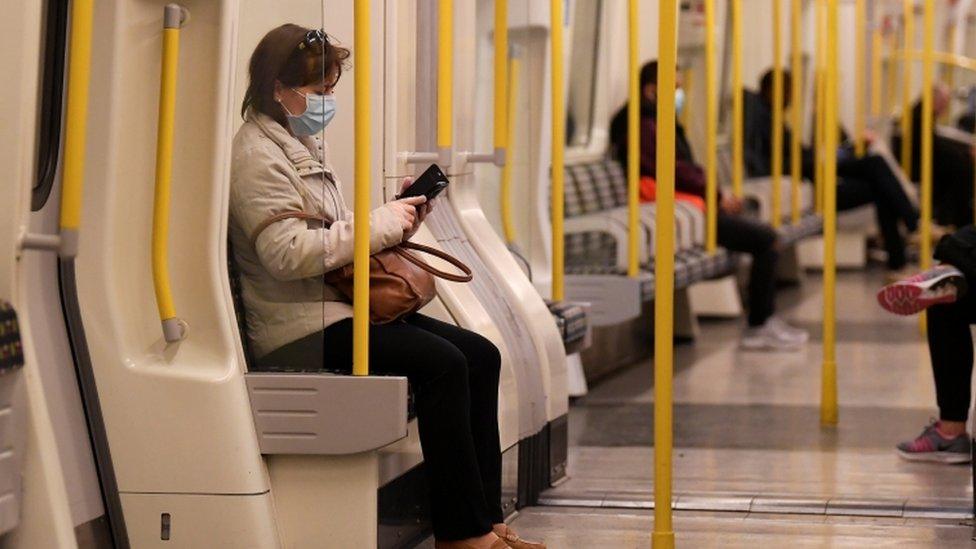
- Published14 May 2020
